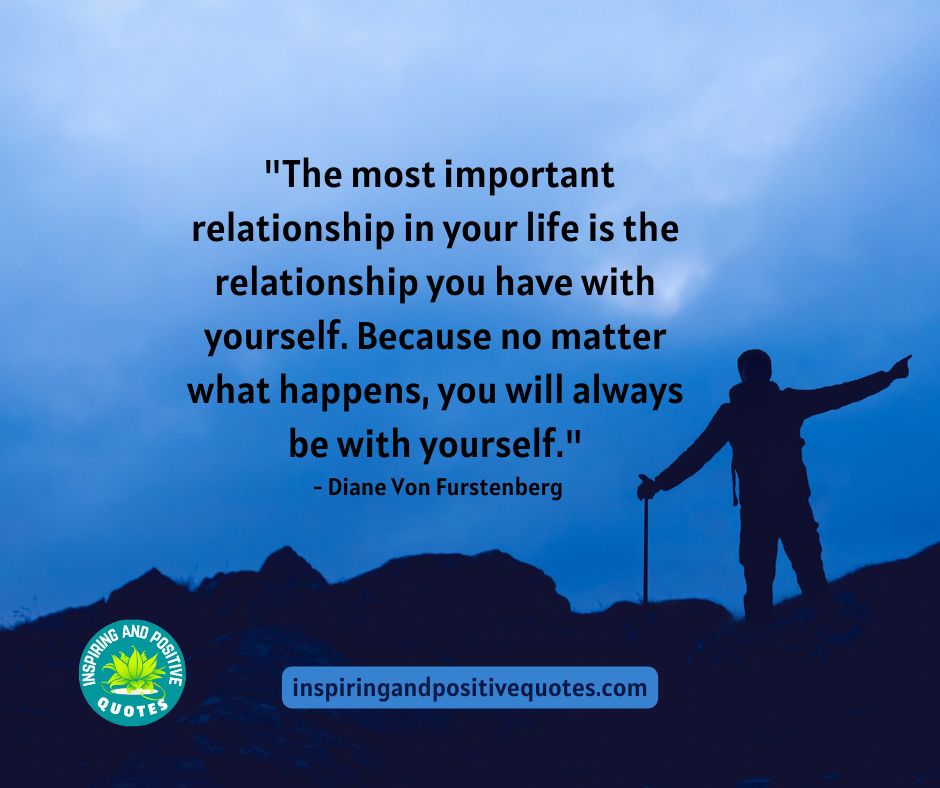In the journey towards a happier and more self-compassionate life, there are certain habits and behaviors that can act as roadblocks, preventing us from reaching our full potential. By identifying and consciously letting go of these hindrances, we pave the way for a more fulfilling and positive existence. This transformation is not about perfection, but about nurturing a mindset and lifestyle that prioritize our well-being and self-kindness. Let’s delve into these 15 things you need to stop doing to embark on this rewarding path.
- Comparing Yourself to Others: Constantly comparing yourself to others can lead to feelings of inadequacy and jealousy. Recognize that each individual’s journey is unique, and your progress should be measured against your own goals and growth. Instead of feeling envious of your colleague’s promotion, focus on your own accomplishments and set goals that align with your aspirations.
- Negative Self-Talk: Negative self-talk can erode your self-esteem and hinder your happiness. Challenge these thoughts by questioning their validity and replacing them with positive affirmations that promote self-acceptance and self-love. When you catch yourself thinking, “I’m not good enough,” replace it with, “I am capable and deserving of success.”
- Seeking Perfection: Striving for perfection is an unattainable goal that can cause stress and anxiety. Embrace your imperfections as part of what makes you human and focus on progress rather than flawless outcomes. Rather than agonizing over a minor flaw in your presentation, acknowledge your effort and deliver it confidently, knowing that imperfections are natural.
- Living in the Past: Dwelling on past mistakes or regrets can prevent you from enjoying the present. Practice mindfulness to stay grounded in the moment and use past experiences as lessons for personal growth. Instead of dwelling on a mistake you made last week, take it as a lesson, make amends if necessary, and commit to applying the lesson moving forward.
- Overextending Yourself: Saying yes to everything can lead to burnout and neglect of your own well-being. Learn to set boundaries and prioritize activities that align with your values and recharge your energy. Instead of agreeing to take on additional tasks at work, respectfully decline and explain your existing commitments, ensuring a balanced workload.
- Holding Grudges: Holding onto grudges only keeps negative emotions alive within you. Practice forgiveness, not necessarily for the other person, but for your own peace of mind and emotional well-being. Choose to forgive a friend for canceling plans, understanding that their reasons might have been beyond their control, and release any lingering resentment.
- Constantly Pleasing Others: Constantly trying to please others can lead to neglecting your own needs and desires. It’s important to strike a balance between meeting others’ expectations and taking care of yourself. Instead of saying yes to attend an event you’re not excited about, graciously decline and prioritize an activity that brings you joy.
- Excessive Social Media Use: Comparing your life to carefully curated online personas can lead to feelings of inadequacy and isolation. Limit your time on social media and focus on cultivating genuine connections in real life. Instead of mindlessly scrolling through social media, set a time limit, and use that extra time to engage in a hobby or spend quality time with loved ones.
- Ignoring Self-Care: Neglecting self-care can drain your physical and mental energy, impacting your overall well-being. Prioritize activities that nourish your body, mind, and soul to maintain a healthy and positive outlook on life. Rather than skipping meals due to a busy schedule, make time for a nourishing meal and use a short break to practice deep breathing or stretch.
- Fearing Failure: Fear of failure can paralyze you from pursuing your goals and dreams. Embrace failure as a natural part of growth and an opportunity to learn and improve. Instead of avoiding a new project out of fear of failure, embrace the challenge, knowing that even setbacks contribute to your growth.
- Judging Yourself Harshly: Treating yourself with harsh self-judgment can lead to low self-esteem and unhappiness. Replace self-criticism with self-compassion, acknowledging your efforts and treating yourself kindly, just as you would a friend. When you make a mistake at work, refrain from self-blame. Instead, acknowledge the mistake and focus on finding a solution.
- Isolating Yourself: Isolation can exacerbate feelings of loneliness and sadness. Nurture your relationships and engage in social activities that bring you joy and connection with others. Instead of canceling plans with friends, make an effort to attend the gathering and engage in meaningful conversations that uplift your spirits.
- Comparing Your Journey: Comparing your progress to others’ can lead to feelings of inadequacy and hinder your sense of accomplishment. Focus on your personal growth and celebrate your unique path. Rather than feeling inadequate because your friend achieved a milestone, celebrate their success and remind yourself of the progress you’ve made.
- Ignoring Physical Health: Neglecting your physical health can impact your mental well-being. Prioritize regular exercise, a balanced diet, and sufficient sleep to maintain a healthy body and mind. Instead of consistently sacrificing sleep to meet deadlines, prioritize getting sufficient rest, which will improve your focus and overall well-being.
- Overthinking: Overthinking and ruminating on problems can lead to increased stress and anxiety. Practice mindfulness, address issues directly, and learn to let go of things beyond your control to foster a more positive mindset. Instead of endlessly worrying about a presentation, create a detailed plan, practice, and trust your preparation when the time comes.

Here’s an elaboration on each of the quotes in the context of living a happier and more self-compassionate life:
- “Comparison is the thief of joy.” – Theodore Roosevelt. This highlights the detrimental impact of comparing ourselves to others. When we constantly measure our accomplishments, appearance, or progress against those of others, we set ourselves up for feelings of inadequacy and unhappiness. Instead of finding joy in our own achievements, we become preoccupied with what we lack. To live a happier life, it’s crucial to focus on our individual journey and celebrate our own successes without being influenced by external comparisons.
- “Talk to yourself like you would to someone you love.” – Brené Brown. This encourages self-compassion and positive self-talk. Often, we are our harshest critics, using negative language and judgments towards ourselves that we would never direct at someone we care about. To foster a happier and more self-kind life, we should treat ourselves with the same kindness and understanding we extend to our loved ones. Embracing self-compassion involves acknowledging our mistakes, but also acknowledging our efforts and strengths, just as we would when supporting a friend.
- “The only way to do great work is to love what you do.” – Steve Jobs This emphasizes the importance of pursuing work and activities that bring us joy and fulfillment. When we engage in tasks that align with our passions and values, we naturally invest more energy and enthusiasm. By choosing to engage in activities that resonate with us, we create an environment conducive to happiness and personal growth. This approach also encourages a positive mindset that extends beyond work to all areas of life.
- “The greatest glory in living lies not in never falling, but in rising every time we fall.” – Nelson Mandela Nelson Mandela’s quote underscores the idea that setbacks and failures are an inevitable part of life. Living a happier and more self-compassionate life involves recognizing that failures are learning opportunities rather than reflections of our worth. When we approach challenges with resilience and use them to learn and grow, we cultivate a sense of inner strength and satisfaction that transcends the difficulties we encounter.
- “The most important relationship in your life is the relationship you have with yourself. Because no matter what happens, you will always be with yourself.” – Diane Von Furstenberg This underscores the significance of self-care and self-acceptance. The relationship we have with ourselves is the foundation for all other relationships and experiences. Prioritizing our well-being, practicing self-kindness, and nurturing a positive self-image contribute to a happier life. No matter the external circumstances, we carry ourselves through life, making it essential to cultivate a healthy and supportive relationship with the person we spend the most time with—ourselves.

This emphasizes the importance of pursuing work and activities that bring us joy and fulfillment. When we engage in tasks that align with our passions and values, we naturally invest more energy and enthusiasm. By choosing to engage in activities that resonate with us, we create an environment conducive to happiness and personal growth. This approach also encourages a positive mindset that extends beyond work to all areas of life.
Final Thoughts
As we conclude this exploration, remember that the pursuit of happiness and self-compassion is a lifelong endeavor. Breaking free from comparison, negative self-talk, perfectionism, and the other hindering habits requires dedication and self-awareness. But with each step, you’re crafting a life that aligns more closely with your authentic self. Embrace your journey with patience, celebrate your progress, and grant yourself the grace to stumble and learn. By releasing these behaviors that no longer serve you, you’re clearing the way for a brighter, kinder, and more contented life. The power to cultivate happiness and self-kindness rests within you. It’s about making conscious choices that prioritize your well-being and foster a positive outlook on life.


